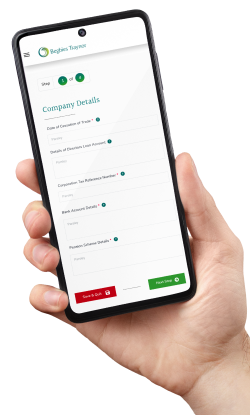One of a liquidator’s main aims during company liquidation is to maximise the returns for creditors. This is achieved by selling the business’ assets following a professional valuation, so creditors receive repayments that are as high as possible.
Sometimes directors of the company in liquidation have plans to begin another venture, and need certain assets to start up. Assets such as vehicles, fixtures and fittings, or IT equipment, may be needed, and it’s possible for the directors to purchase these assets from the old company.
Concerned about the National Insurance increase?
For the 2024-25 tax year, the rate of employer National Insurance increases from 13.8% to 15% adding yet more pressure onto already squeezed cash flows. If you are worried about the impact this could have on your company’s finances, talk to the experts at UK Liquidators. As licensed insolvency practitioners we can explain your options and help you plot a way forward. Call today on 0800 063 9262.
Timing is important to consider if you’re thinking of buying back assets from your liquidated company. If you buy assets from the business before a liquidator is appointed, it’s highly likely to be viewed as a transaction that has worsened the position of creditors.
The purchase must be controlled by the liquidator, who will ensure a fair market value has been placed on the assets in question. With creditors’ interests first and foremost, the liquidator must realise the highest returns possible and not sell the assets at undervalue.
So although you can buy back assets during or after your company’s liquidation as long as the transaction is overseen by the office-holder, you shouldn’t purchase any assets of your failing company prior to the liquidator’s appointment.
Liquidation Portal
For Company Directors

Buying assets in a liquidation sale can be cost-effective, especially when you’re setting up a new business and may have limited funds available. When purchased under the strict rules of insolvency it can help the start up process, and you also have the benefit of practical knowledge of the assets.
Having used them in the old company you know their history, their value to the business, and whether they represent good value for money, which can help with the transition from one company to another.
Start your online liquidation today
If you have decided liquidation is the right option for your limited company, you can take the first step and begin the process online using our online portal. Starting the process is quick, simple, and can be done at a time that suits you. Your information will be submitted to your local UK Liquidators insolvency practitioner who will be with you every step of the way. Click here to start your company’s liquidation online.
If you purchase an asset of your company after the business enters insolvency but before a liquidator is appointed, and the purchase price is below fair market value, you risk allegations of misconduct.
These transactions are called ‘transactions at undervalue’ and the liquidator can have them reversed, or recover the asset that was purchased. The liquidator will scrutinise the company’s books for transactions of this type for up to two years prior to entering insolvency.
The risk for you and other directors is significant if you buy back assets before a liquidator takes office, rather than during or after a liquidation. If you would like more information on the rules surrounding the buying back of assets in liquidation, please contact one of our expert team.
UK Liquidators are liquidation specialists and can offer independent professional advice. We offer same-day consultations free-of-charge, and operate through a network of offices throughout the country.
By completing the test, you will receive:
If you are considering liquidation for your company, taking expert advice at an early stage is crucial. At UK Liquidators, our team of licensed insolvency practitioners are committed to providing limited company directors with the help and advice they need to make an informed decision.




Looking for immediate support?
Complete the below to get in touch